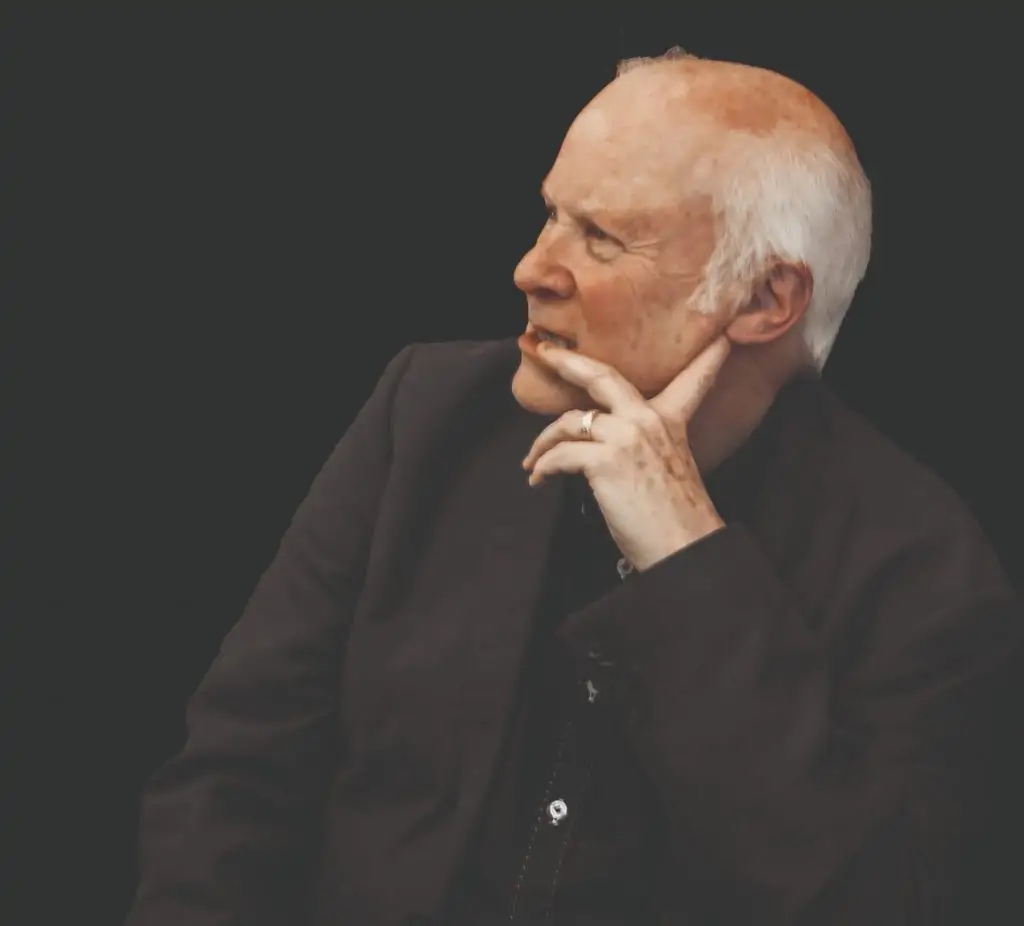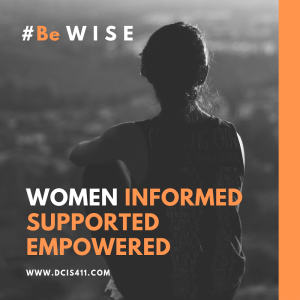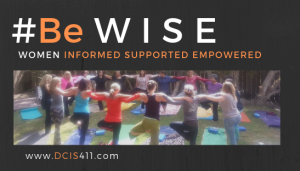Women Informed Supported Empowered
#BeW I S E is a woman’s health initiative with an urgent public health mission — to ensure all women are properly informed about serious potential harms of breast cancer screening such as overdiagnosis.
Conflicts of interest and well-funded marketing campaigns have created an imbalance of information — promoting a one-sided story of “life-saving” benefits of mammography while ignoring or downplaying serious harms.
Key points of a recent article published in Psycholgy Today, Oct 2022, The Harms of Cancer Screening They Don’t WarnYou About
“YOU CANNOT SAY THAT BREAST SCREENING SAVES LIVES”

World-class breast cancer specialist Professor Michael Baum speaks to Liz Earle about championing new treatments and why he wouldn’t recommend attending a routine mammogram.
“Estimates of benefit have been grossly overestimated,” he explains, “but none of the data shows that breast cancer screening reduces all-cause death. There was a modest effect on breast cancer death and no reduction in all-cause death, so you cannot say that breast screening saves lives.”
So how can screening reduce breast cancer deaths but not deaths of women overall?
“We now know that about 30% of breast cancers diagnosed by screening would never be life threatening, but the treatment can kill you,’ Michael explains. ‘Surgery, radiotherapy, chemotherapy and radiotherapy increases the risk of cardiovascular disease and even (rarely) lung cancer.
“For every breast cancer death avoided there is one death caused by over-diagnosis.”
Read full interview here.
#BeWISE videos and info-graphics break down real science into simple, no-nonsense chunks. Topics include:
- Actual vs. Perceived Risk of Breast Cancer
- Potential Harms of Screening Mammography
- Overdiagnosis & Overtreatment
- DCIS (Stage Zero Breast Cancer)
- Options for Breast Imaging
- Nutrition & Lifestyle Risk Reduction/Prevention Strategies
Actual vs Perceived Risk of Breast Cancer
Women’s perceptions do not match scientific data.
Women may hear…
“Regular mammograms reduce breast cancer deaths by 20%.”
Sounds pretty good…but how many lives do they really save?
Only 1 in 1,000!
Watch this excellent short video explaining this:
Informed Consent and Informed Choice
Having a mammogram — or not — should be a personal decision based on balanced, unbiased information which weighs both the benefits and harms. No one should ever feel pressured, intimidated, bullied or shamed for choosing NOT to have a mammogram.
PLEASE SIGN & SHARE PETITION: INFORMED CHOICE in Breast Cancer Screening / Insurance for Ultrasound and QT Imaging
How can women make a truly informed decision?
The Harding Center for Risk Literacy created a “fact box ” which illustrates benefits and harms of early detection of breast cancer by mammography screening.

Mammography for Breast Cancer Screening: Harm/Benefit Analysis, NBCC:
“In terms of absolute numbers based on the USPSTF analysis, for every 1000 women aged 50-74 years screened every two years for 10 years, there will be 953 false positives and 146 unnecessary biopsies will be conducted. When one includes women 40 and up, the number of false positives climbs to 1,529 with 213 unnecessary biopsies.
Another important harm of screening is overdiagnosis and, consequently, overtreatment. The results from randomized clinical trials reveal that between 11 and 22% of all identified breast cancers, including ductal carcinoma in situ (DCIS), are overdiagnosed [6]. Detecting, removing, and treating breast cancers that would never have spread to other parts of the body does not save any lives but does impose harm. Until researchers are able to determine which breast cancers will eventually spread and reduce quality of life or result in death, overdiagnosis will continue to be a concern of the current screening technologies.
In terms of absolute numbers of individuals overdiagnosed by screening mammography based on the USPSTF analysis, for every 1000 women aged 50-74 years screened every two years for 10 years, a total of 19 women will be overdiagnosed, and this number climbs to 21 for comparable screening for women 40-74 years of age.
Another risk of routine mammography is associated with exposure to radiation. Computational modeling studies predict that between 2 and 11 women out of every 100,000 undergoing routine mammography screening will die as a result of radiation-induced cancer with the incidence highest in women who begin getting annual mammograms in their 40s and lowest in the women who begin getting mammograms biennially in their 50s [6].6“
Watch NBCC videos explaining screening and mammography here.
Mammography Screening Is a Failed Experiment by John Horgan, May 12, 2023 (in response to the US Preventative Services Task Force Draft Recommendations to lower the screening age to start at 40):
“Moreover, mammograms can lead to false positives and an even more insidious problem, overdiagnosis. A false positive can be overturned by a biopsy, but not overdiagnosis, which occurs when screening detects tumors and other anomalies that never would have compromised health if left alone. Overdiagnosis often leads to unnecessary treatment, including surgery, chemotherapy and radiation.
The Preventive Services Task Force asserts that the benefits of mammography, which ideally detects cancer early when it is more treatable, outweigh harms stemming from false positives and overdiagnosis. But the alleged benefits of screening appear only in studies that measure breast-cancer mortality, which does not capture harm stemming from overdiagnosis.”
MUST WATCH Video
Dr. Vinay Prasad makes the case: Mammography screening does not save lives when “all-cause mortality” and overdiagnosis are factored in
Articles explaining pros/cons:
More Videos:
- #AdamRuinsEverything and Joann Elmore, director of the UCLA National Clinician Scholars Program explain this not-so-funny topic.
“Turns out, mammograms save fewer lives than you think…”
9 out of 10 Women Misinformed About Mammograms
Dr. Michael Gregor has made a series of 14 videos explaining the pros and cons of mammography. Women need to take the time to understand this:
- Cancer-Rose, an organization in France created a leaflet and video to inform women: Breast Cancer Screening: A DECISION THAT BELONGS TO EVERY WOMAN
- Dr. Pam Popper shares about the importance of women being properly informed about mammograms:
- Conspiracy of Hope: The Truth About Breast Cancer Screening, states: “For decades, women have been told that mammograms save lives. Yet many scientists say that this is in fact not true. Conspiracy of Hope reveals how breast cancer screening was introduced in the US before there was any good evidence it made any difference, and an unfounded belief in early detection caught on quickly in Canada and other developed countries. Today the evidence is starkly clear. Screening does more harm than good. Still women, and their doctors, continue to buy into a myth perpetuated by greed, fear, and wishful thinking.
Watch this interview with author, Renee Pellerin:
Two important documents created by Breast Cancer Action, an exemplary nonprofit organization dedicated to ensuring everyone has access to unbiased information:
- How Routine Mammography Screening Leads to Overdiagnosis & Overtreatment
- Should I Get a Mammogram? is an online brochure explaining overdiagnosis, overtreatment, false positives, and false negatives.
Overtreatment of DCIS — “Stage Zero” Breast Cancer
“DCIS is a prime example of potential overtreatment. DCIS is usually treated similar to invasive breast cancer with surgery, radiation and hormone-blocking medicines.

Despite newer research concluding these interventions provide no difference in survival, aggressive ‘cancer’ treatments remain the ‘standard of care,’ and many women world-wide are faced with the life-long emotional, physical and financial consequences of aggressive treatments.
Estimates suggest that mammographic screening has resulted in overdiagnosis and overtreatment in over 1 million women in the United States in the past 30 years. The majority of this is due to the overtreatment of DCIS.” – PRECISION (PREvent ductal Carcinoma In Situ Invasive Overtreatment Now), an international research project funded by Cancer Research UK
Dr. Michael Gregor explains Overtreatment of DCIS:
Culture of Fear Needs a Paradigm Shift
“There’s a hysteria around breast cancer. The extremism that sometimes comes into play in DCIS treatment decision making is a ‘cultural problem.’ This is not a life-threatening problem.” –– Dr. Anne Partridge, MD, MPH, Dana-Farber Cancer Institute
“Because of the noninvasive nature of DCIS, coupled with its favorable prognosis, strong consideration should be given to remove the anxiety-producing term “carcinoma” from the description of DCIS.” – National Institutes of Health, State of the Science, 2009
Is Ductal Carcinoma In Situ (DCIS) really cancer?
Dr. Susan Love sheds light on DCIS:
Facts about DCIS:
- DCIS stands for Ductal Carcinoma in Situ
- It is different from INVASIVE breast cancer
- Mainly found on screening mammograms
- Affects 60,000+ women annually world-wide
- Most women are healthy with no signs or symptoms
- “Standard of care” treatments are extremely aggressive and one-size fits all — similar to invasive breast cancer
- New research indicates vast overdiagnosis and overtreatment for up to 80%
If you are diagnosed with DCIS:
- Review DCIS 411
- Review FAQ
- Review Holistic Health
Options for Breast Imaging
- Read: Breast Imaging Options — A Patient Advocate Investigates ABUS and QT
- Read : Bye-Bye Mammograms: Hello SonoCiné Ultrasound
- Learn about breast density — one of the strongest predictors of the failure of mammography screening to detect cancer. Visit Are You Dense?
- Read: All Women Should Have Access To Ultrasound Screening For Breast Cancer
- Are Mammograms a Scam? You Decide
- Did you know –-Mammograms miss 40% of INVASIVE CANCER?!?!
Nutrition & Lifestyle Risk Reduction/Prevention Strategies
- Food: A Powerful Solution for Disease Prevention, The Angiogenesis Foundation
- Foods for Cancer Prevention Fact Sheet, “Let’s Beat Breast Cancer: A 4 Pronged Approach,” Physicians Committee for Responsible Medicine
- Holistic Health, DCIS 411
- Ornish Lifestyle Medicine, Dr. Dean Ornish
- Prevention/Risk Reduction, Dr. Susan Love Research Foundation
- Nutrition & Lifestyle, Dr. Deanna Attai
- Proactive Breast Health Club, DCIS Redefined: Dilemmas, Choices & Integrative Solutions
PLEASE SIGN & SHARE PETITION: INFORMED CHOICE in Breast Cancer Screening / Insurance for Ultrasound and QT Imaging
DCIS 411 Founder Donna Pinto shares her story:

Is Stage Zero breast cancer really cancer? 7 ON YOUR SIDE investigates the controversy
‘Over-diagnosis and over-treatment of breast cancer is a travesty in women’s healthcare’ My Story: Donna Pinto, Independent.ie Health & Wellbeing
Financial Support
Even small contributions will go a long way in supporting this campaign to educate millions of women world-wide. Click here to DONATE — Thank you!!!
Contact: donna@dcis411.com
Please consider signing and sharing this petition: Inform Women about Mammography Harms Too / Insurance for Automated Ultrasound Needed!
Please share #BeW I S E with women you care about! Thank You!!
Stay Connected
- DCIS 411 — “Follow” for email alerts with new posts
- DCIS is NOT Cancer “Join” Facebook Group
- DCIS Integrative Support & Empowerment “Join” Facebook Group:
- Follow @dcis411 on Twitter




Hi Donna! This link does not work: Food for Life Cancer Project, Physicians Committee for Responsible Medicine. Thanks for keeping up the good fight!
LikeLike
Thanks so much Susan! I fixed it!
LikeLike
I am 62 years old. Noticed a lump the size if a popcorn kernal in my left breast 1cm from the nipple at the 1:00 position in November 2018. Had a 3-d mamogram which showed nothing although I had a lump. It was followed by a ultrasound and they could see a sideways oval black void. I decided not to get the biopsy and to just watch it for a while. No other symptoms than the small lump was present. Had a repeat mammography and ultrasound on 5/16/20. This new facility had my prior reports and CD film. With the second screening I was told to do the core needle biopsy. I was diagnosed with having DCIS “and” invasive mucinous carcinoma of the same biopsied lump on 5/26/20. QUESTION: How can I have both diagnosese from the “one” biopsy of the “left” breast? My right breast was not biopsied as the mamagram was normal. (I have always had reported that I have dense breast and from age 35 to in my late 40’s was given a yearly mammogram.) My last mamogram was in 2008 and then I stopped all screening case the compression got more vigorous and intense and I just could not withstand the agressive pressures they would instill stating that, “well, you have dense breast so we must compress a little bit more than usual.” I was not screened again until 2018 when I found the left breast lump. They also say the lump (11mm) was at the 12 o’clock position this time in 2020 instead of 1 o’clock as in 2018. Hmmm…guess it moves. I am Lunimal “A” with ER/PR positive and HER-2 negative; Ki-67 index 2+; IHC score 1+, and the mucin is >90 percent. No necrosis. Lymphnovascular Invasion: Absent. I have not moved forward for any traditional treatment as the wish to pursue radiation and with Hormone suppressive drugs. (I have Automimmune Disease (positive ANA) and it presents ad Raynaud’s Syndrome in my hands. It this time the Raynaud’s has greatly subsided since I am presently unemployed and no longer stressed by my paralegal job.) I really need some direction, as I plan to just continue with my new diet, lifestyle changes and exercise program, (I like running sprints at a local track) but don’t plan to see the Doctor who offered me this confusing diagnosis as she says what I read/watch on the internet is all quacks. (Note: I read peer review articles from Harvard Medical and John Hopkins so I’m not sure how she arrived at her conclusion other than she is upset I did not quickly trust her and her plan of treatment she outlined which is a Lumpectomy or if she feels if needed a Mastectomy with removal of several lymph nodes along with radiation and hormone suppressant drugs. I will not engage in such a barberic form of treatment for my otherwise odd diagnosis. Please advise. Thank you.
LikeLike
Thanks for another magnificent post. The place else may just anyone get that type of information in such an ideal way of writing? I’ve a presentation subsequent week, and I am on the search for such info.
링크사이트
주소찾기
성인주소모음
LikeLike
Pingback: On a Mission to Help Women Avoid Harms of Mammography Screening — Donna Pinto Shares Her Story with Dr. Jenn Simmons — Breast Surgeon Turned Functional Medicine Doctor | DCIS 411